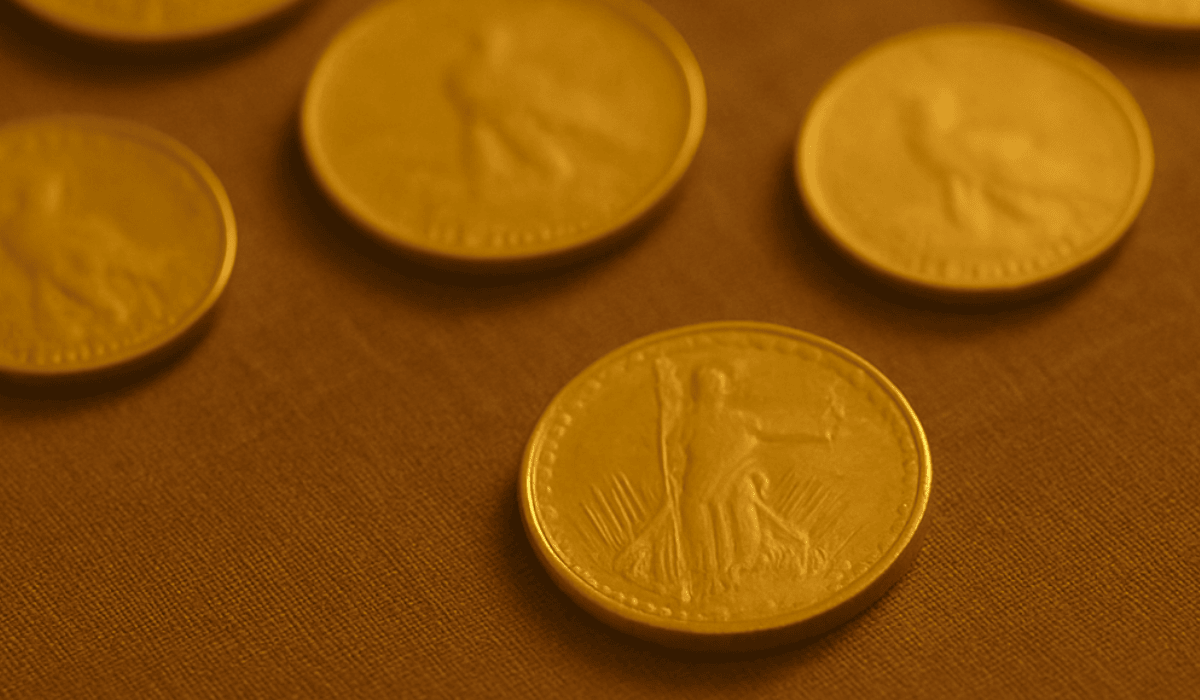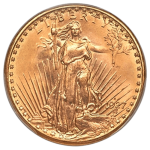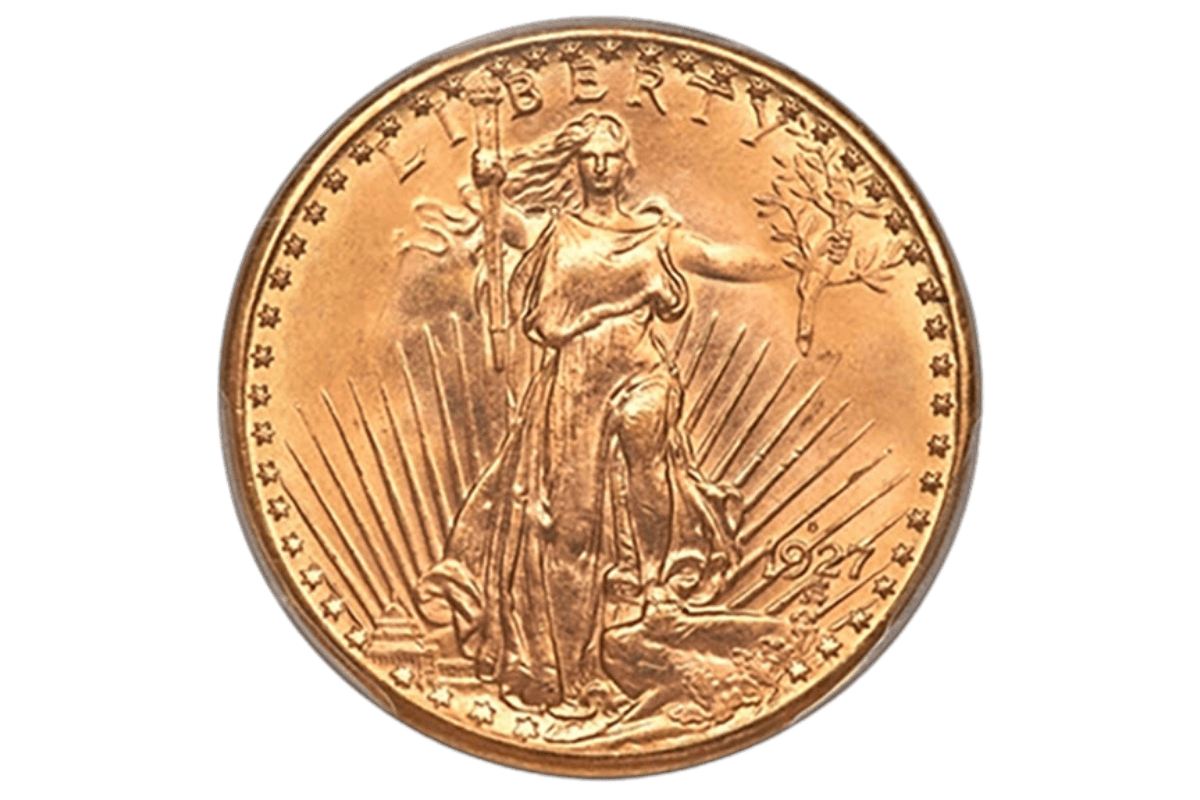With gold prices near historic highs, many people are looking to turn their gold coins into cash, and online selling is proving to be a smarter way to do it. According to market experts, online platforms often offer better returns, wider reach, and safer transactions than local coin shops or pawn stores. But knowing where and how to sell your gold coins online can make all the difference between a smooth, profitable sale and a risky experience.
Whether you’re holding onto American Gold Eagles, Canadian Maple Leafs, or rare collectible coins, understanding the best way to sell gold coins online starts with the right preparation and strategy.
In this article, you’ll learn:
- How to evaluate your gold coins before listing them for sale
- Which online platforms are most trusted for selling gold coins, including Coinfully, eBay, and auction houses
- How to create a detailed, trustworthy online listing that attracts serious buyers
- Steps to complete a secure transaction and receive payment safely
- Common mistakes and scams to avoid when selling gold coins online
By the end of this post, you’ll know the best way to sell gold coins online with confidence, from understanding your coin’s value to choosing the right platform and avoiding common pitfalls.
Understand What You’re Selling
Bullion vs. Collectible Coins
Gold coins fall into two main categories: bullion coins and numismatic (collectible) coins. Bullion coins like the American Gold Eagle, Canadian Maple Leaf, and South African Krugerrand are primarily valued for their gold content.
They are usually minted in high purity levels, ranging from .900 to .999 fine gold, and their prices closely follow the current market spot price of gold.
Numismatic or collectible coins, on the other hand, may hold value beyond their gold content. Their worth can be influenced by rarity, historical significance, minting errors, and overall condition. These coins are often sought after by collectors and may sell for much higher than their melt value depending on market demand.
Key Value Factors
When determining how much your gold coins are worth, consider the following:
- Weight: Gold coins are typically measured in troy ounces. Common bullion coins come in 1 oz, ½ oz, ¼ oz, and 1/10 oz sizes.
- Purity: Most bullion coins are 22K (.9167) or 24K (.999) pure gold.
- Condition: Coins in uncirculated or proof condition often command higher prices.
- Rarity: Limited mintage or unique features can significantly increase value.
- Current Spot Price: The live market rate for gold directly affects bullion coin prices.
Prepare Your Gold Coins for Sale
Weigh and Verify Purity
Start by weighing your coins using a digital scale that measures in grams or troy ounces. Most gold coins will have their weight and purity stamped, but it’s wise to verify with a testing kit or through a professional. Purity levels of .900, .9167, and .999 are most common.
Consider Grading and Appraisal
Professional grading services like the Professional Coin Grading Service (PCGS) and Numismatic Guaranty Company (NGC) can authenticate and assign a grade to your coin. Graded coins often sell for more because buyers can trust their quality and authenticity. For particularly rare or collectible coins, a professional appraisal may help justify a higher asking price.
Gather Documentation
Buyers are more likely to trust listings that include:
- Certificates of authenticity
- Original purchase receipts
- Grading reports
- Historical or provenance documentation
Having this paperwork ready can speed up the sale and help you get a better price.
Choose the Right Online Selling Platform
Coin Purchasing Companies
Some companies specialize specifically in buyer coins through simplified online process. For example, Coinfully offers a streamlined service to sell your gold coins online. Other options exist as well. With companies like this, make sure you receive a free insured shipping label when you send in coins for evaluation and sale.
eBay and Online Marketplaces
eBay is one of the most popular platforms for selling gold coins online. It offers global reach and the ability to run auction-style or fixed-price listings. This can be beneficial for rare coins that may fetch a premium in a bidding war. However, eBay charges listing and final value fees, and you’ll need to build a strong seller reputation to attract serious buyers. There’s also the risk of returns or disputes, so clear descriptions and high-quality photos are essential.
Auction Houses and Dealers
For rare or high-value coins, traditional auction houses like Heritage Auctions or Stack’s Bowers can be a solid option. They cater to serious collectors and often achieve strong selling prices. The downside is longer wait times and commission fees, which can range from 10% to 20%. If you’re not in a hurry and have a coin with significant numismatic value, this route might be worthwhile.
Create an Effective Online Listing
High-Quality Photos
Photos can make or break your listing. Use a high-resolution camera or smartphone with good lighting to capture clear images of both sides of the coin. Include close-ups of any mint marks, unique features, and packaging if available.
Accurate, Detailed Descriptions
Buyers need to know exactly what they’re purchasing. Include the following details:
- Coin type and denomination
- Year and mint mark
- Weight and gold purity
- Grading information (if applicable)
- Any historical or collectible significance
Be honest about the condition, and don’t hide any flaws or wear.
Pricing Your Coin
Research similar coins on platforms like eBay and gold dealers to see what they’ve recently sold for. Use the current gold spot price as a baseline if selling bullion. For rare coins, consider starting with an auction listing to let the market determine the value.
Complete the Transaction Safely
Secure Payment Options
Only accept secure payment methods that offer seller protection. These include:
- PayPal (with seller protection enabled)
- Bank wire transfers
- Escrow services for high-value transactions
Avoid accepting personal checks or money orders from unknown buyers.
Insured and Tracked Shipping
Always use a shipping service that offers insurance and tracking. Package your coin securely in tamper-proof packaging and use bubble wrap or coin holders to prevent damage. Services like USPS Registered Mail, FedEx, or UPS are good options for high-value shipments.
Responding to Buyers
Maintain prompt and professional communication. Answer questions honestly and keep records of all interactions. This can help resolve any misunderstandings or disputes later on.
Avoid Common Mistakes and Scams
Watch for Red Flags
Be cautious of:
- Buyers offering to pay more than your asking price
- Requests to complete the transaction outside the platform
- Fake payment confirmations or screenshots
If something feels off, it usually is. Stick to platforms with seller protections.
Understand Fees
Selling online often comes with costs. These may include:
- Grading or appraisal fees
- Shipping and insurance
- Platform listing and commission fees
Calculate these into your pricing to make sure your profits remain intact.
Don’t Misrepresent Your Coins
Giving inaccurate information can lead to returns, negative reviews, or even account suspensions. Always describe your coins truthfully and include any flaws or wear in your listing.
Know the Tax and Legal Implications
Capital Gains Tax
If you sell a gold coin for more than you paid, you may owe capital gains tax. Gold is considered a collectible, which means it can be taxed at a maximum rate of 28% on long-term gains in the U.S. Check with a tax professional to understand your specific obligations.
Keep Records
Maintain a file with:
- Purchase receipts
- Sales invoices
- Shipping and appraisal documentation
This will help during tax season or in case of an audit.
Expert Help and Additional Resources
Coin Appraisal and Grading Services
If you’re unsure about your coin’s value or rarity, consider using services like:
- Professional Coin Grading Service (PCGS)
- Numismatic Guaranty Company (NGC)
Local coin dealers or appraisers can also provide in-person evaluations.
Where to Learn More
Here are some trusted resources for further guidance:
- Coinfully’s Guide to Selling Gold Coins
- Consumer Affairs – How to Sell Gold
- American Numismatic Association
Make a Successful Sale with Confidence
Selling gold coins online can be a rewarding process when done correctly. Start by understanding the type and value of your coin, and prepare it with proper documentation and, if needed, professional grading.
A successful sale involves clear communication, secure transactions, and protecting yourself from fraud. With careful planning and the right tools, you can sell your gold coins online safely and profitably.





